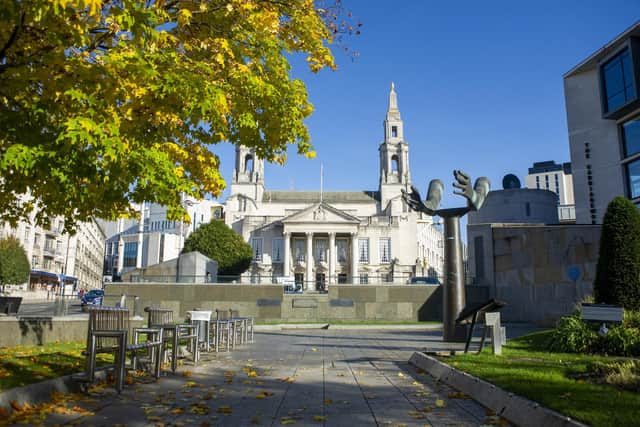The rich should do more to reduce carbon footprint, claim these Leeds councillors
and live on Freeview channel 276
A motion, known as a white paper, will go before a full Leeds City Council meeting next week. It calls on councillors to accept richer individuals tend to have a larger carbon footprint than those from poorer backgrounds.
The document, to be presented by the council’s Green Party group, will be discussed as the crucial UN Climate Change Conference summit, known as COP26, continues in Glasgow, which sees world leaders attempting to thrash out a deal aimed at limiting global temperature rise to 1.5 degrees centigrade.
Advertisement
Hide AdAdvertisement
Hide Ad

Green Party councillor Ann Forsaith will next week call on fellow members to accept that those from more “affluent” communities can contribute more towards tackling carbon dioxide emissions, and for the council to “focus” its pro-environment policies on wealthier individuals and businesses.
All councillors will have a chance to vote on whether to adopt the motion as council policy during the meeting.
The document in Coun Forsaith's name reads: “Leeds City Council declared a climate emergency in March 2019, with the target of 2030 for achieving carbon neutrality, recognising the part Leeds has to play in this global challenge.
“Council recognises that some communities in Leeds have far larger carbon footprints than others. Climate change is already affecting most those who are least able to pay, whilst those with higher incomes add proportionally more to carbon emissions in the City.
Advertisement
Hide AdAdvertisement
Hide Ad“Council therefore understands that positive actions by more affluent communities and sectors to reduce their carbon emissions can contribute most effectively to ensuring our City reaches net zero carbon by 2030.
“Whilst supporting the current work of Leeds City Council on a range of issues that includes fuel poverty reduction and home insulation, council resolves to focus Leeds City Council carbon reduction plans, and any related policies, on those sectors and those communities that through reducing their high carbon footprints will contribute most to reaching our carbon neutral target. In this way, Council’s response can aim to deliver climate and social justice together with carbon neutrality by 2030.”
According to a study by the University of Southampton in 2013, more than half of those in the UK classed as a “high income” household were also classified as high CO2 producers, compared to only six percent of “low income” households.
Leeds City Council will meet on Wednesday November 10 to discuss the motion.
Advertisement
Hide AdAdvertisement
Hide AdSupport the YEP and become a subscriber today. Enjoy unlimited access to local news, the latest on Leeds United and interactive puzzles. With a digital subscription, you see fewer ads, enjoy faster load times, and get access to exclusive newsletters and content. Click here to subscribe.
